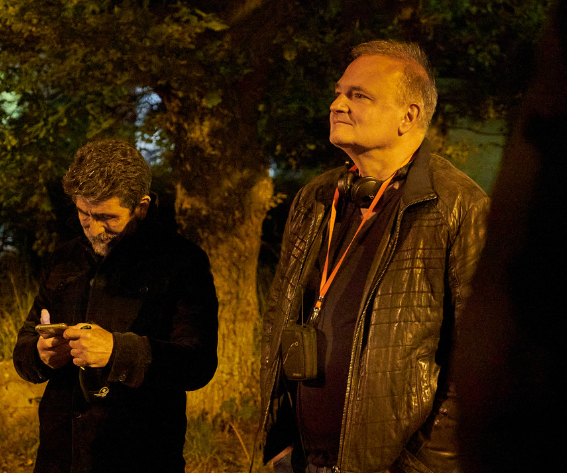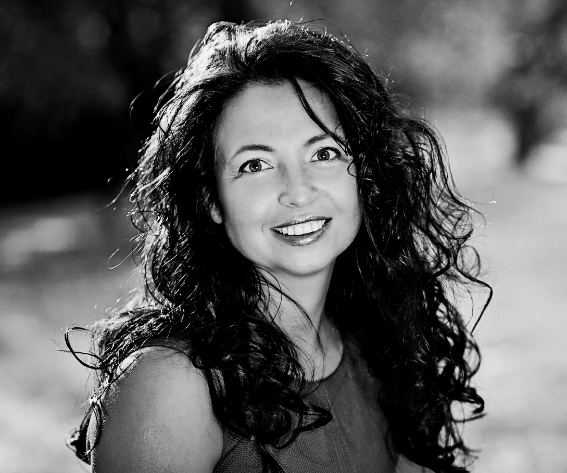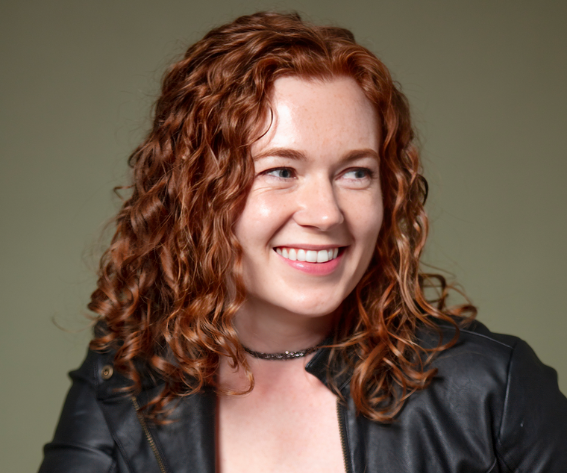Today we’re chatting with our March 2018 FILM OF THE MONTH winner, Sergey Tselikov. Besides the FILM OF THE MONTH award, Sergey’s film ‘Going AWOL‘ managed to win 3 other awards: Director of the Month, Screenwriter of the Month and Actor of the Month.
JL: Sergey, congratulations on the big win! We all loved your film, here at TMFF, and it made us fondly reminisce great memories associated with our own adventures when turning 18.
Sergey: Thank you. I’m often told that films bring back childhood memories. It’s always a pleasure to hear such feedback. By the way, the incident depicted in the film actually happened to me in real life. The protagonist was based on me. My eighteenth birthday was also a turning point in my life. It gave me a lot to think about and plenty to reconsider. On that day, my entire future career nearly fell apart, and all because of a stupid mistake. For someone that young, the stress was a lot to bear!
JL: How did you decide on the topic, and on the naval cadet setting? Does this have a special significance for you?
Sergey: Yes, it does. Before my admission to the Institute of Cinematography, I studied for five years at the Maritime Academy, so everything that is shown in the film is from experience, and not just speculation. When I tell someone that I left behind a sailor’s career to become a director, I’m always asked the same question: do you regret the years you spent at the Academy? I always reply that I have no regrets, because it was thanks to the naval academy, with its discipline and training, that I am who I am today. Naturally, I wanted to pay tribute to this period of my life, so I decided to show it on film. I think that it was necessary to do this in order for me to realize that this chapter of my life is forever closed.
JL: You’ve also won our Director of the Month and Screenwriter of the Month awards – congratulations!
Sergey: Thank you. You could say that my screenwriting process was life itself – I just followed the lead.
JL: More remarkably, you did so with what you indicated as your first film project! How much of an incentive is this to keep going and tell more stories through this medium?
Sergey: Of course it stimulates me. Especially considering that I have done quite a number of foolish things in my life, so there are plenty of stories left to spare! Now I am working on another short film, it is called “Adjika – Extreme Club”. This is a story about young guys who do extreme things and then film their stunts and put them on YouTube. One day, a suspicious-looking guy shows up at their training club and tells them that he’s an investor who wants to put money into extreme sports. He promises the guys millions of views, but in order to get them, they will have to put on controversial performances. This story is also inspired by my experience. In my younger years, I engaged in rope jumping and I too, dreamed of fame. Of course, back then no one offered me money. But it became interesting to fantasize about how I would have behaved if such an offer was made to me, and what kind of consequences would be waiting for me afterwards. As I said, the film is still in production, and I think that sometime in autumn of 2019 it should show up online. In the meantime, I can show you the trailer: https://youtu.be/Gs1B2JtXcsU – there are subtitles in English. Make sure they are turned on.
JL: What was your most important learning point from the whole process of filmmaking, as a director?
Sergey: I suppose it is during shooting that I consider that you understand why you are studying, what you’re studying and what your worth is as a person. I remember it well – my first day on the set: the cameraman, the lights, the make-up artist, the camera operator, the focus assistant, the production designer, the crew, the sound technician, the administrator, the girl working the snap and, most importantly, the actors – everyone is looking at me and waiting for the command … I put on a harsh face and shout: “Action!”, I look at the monitor, and just as I look, I see a take from my unreleased film. And I stand there and feel like everything is starting to slip away. The actors, with whom we’ve rehearsed for several days from morning ‘til night, can’t handle the attention of twenty people, several kilowatts of directional light and a thick layer of makeup. It appears as though they’re acting, but their portrayals seem off – not what I’m expecting of them. So here’s the paradox: the script is the same, the actors are the same, but the movie is coming out different. And who are all these people? What are they doing on my set? Why do they violate the perfect idyll that reigned yesterday? I remember how I did a lot of self-reflection that evening. Pulled myself together and gave a vow no longer to mess around on set. After all, this is my movie and it’s on me how it works out. The actors, the crew – they’re all here for the sake of one task. So the job must be done without everyone looking from side to side!
JL: What was the biggest obstacle that you had to tackle?
Sergey: Oh, there were so many that it’s almost impossible to even recollect them all. One time during shooting, the police nearly kicked us off set, because we were filming without permission. Another time, an actor suddenly didn’t show up to do voice-over work and then (apparently from shame, otherwise I can’t really explain it) for several months didn’t answer my phone calls. And we have a schedule! The work is at a stand-still! Then out of nowhere, on the last shift, the operator informs us that we only have one reel of film left and I now know that everything needs to be shot in one take, because there is simply no film for a second one … and at one point, somehow the hard drive was crushed with all the material on it. I even fell into depression then. But it’s alright. We got lucky – it was restored. I once read a phrase in an interview with Konstantin Bronzit, where he said: “When you start making a new film – it feels like the whole world starts rebelling against you.” I agree with every word. Films are often made not “Thanks to –“, but “In spite of – “
JL: Some films use black and white colouring with no real purpose – but it worked fantastically in yours, and perfectly set the atmosphere. How did you come to this decision?
Sergey: To tell you the truth, I decided a long time ago that I wanted my first film to be in black and white and shoot “like they taught in school” – with classic frame sizes and classic editing. Although I thought of that when I shot a full-length feature film, I will probably not be able to do it in BW – because you have to consider the requirements of studios and it wasn’t guaranteed that my hands wouldn’t be tied. As a contrast, with short films – you can do pretty much whatever you want. And then it all somehow evolves on its own. The theme of the film conclusively convinced me that I was on the right track. After all, the story itself is a memory and a black and white film immediately adds a feeling of nostalgia. We intentionally removed all elements that would be able to date the film in order to make the story more universal. So that when you watch it, you could say that it could have happened ten, or twenty, or however many years ago.
JL: We love the universalism of your film, since an overwhelming number of teenage adventures worldwide are centred around alcohol and minor breaks of authority. Did you have a specific audience segment in mind when making the film?
Sergey: No, I didn’t. I just wanted to tell a story that once happened to me 🙂
JL: Where did you shoot the film?
Sergey: We shot at the Maritime Academy, where I studied. To be honest, I really wanted to show my memories as realistically as possible. You know, even the stall where cadets buy beer in the film – it’s real. In that exact stall it’s where the beer was bought when I hit 18. Yuri Fomin, who plays a commander in the film – he is also an actual commander from my childhood. After all, who else could I imagine when I wrote his lines in the script? Do you know how disappointed I was when I started picking actors for his role and saw that none of them could give me what I needed? Of course then I went straight to my commander and invited him to play the part. I admit, such meticulous realism sometimes backfired on me. If I hired a professional actor – it would be much easier for me to work on set. But this was my first film and I have yet to fully understand the meaning of the expression: “There are two truths: the truth of life and the truth of art.” However, shooting in the actual walls of the Academy enriched the film in so many ways. The actors, for example, arrived a week before the rest of the crew so they could get to feel what it’s like to be in the shoes of a cadet. Every morning they got up for exercises, went to drill lessons and learned how to properly make their beds. Undoubtedly, this experience allowed them to get a better feel for their characters.
JL: What kind of equipment did you use?
Sergey: We shot on black and white, 35mm film. It was my deliberate choice. The era of film is irretrievably ending, but I really wanted to get some experience using it. And, you know, it was a tremendously useful experience: you had to think ten times before saying “Motor”. With film you are usually very limited. Two or three takes and that’s it. Otherwise, there won’t be enough film for another scene. The next movie I shot “went digital” and there were no such restrictions. And when there are no restrictions, you do 5, sometimes 10 takes. But do you know what is most surprising? The fact that it’s difficult to decide which of these 10 takes should go in the film. As opposed to when you shoot 2 or 3, then you could just use any one of them. Film has a way of mobilizing you. Everyone – from the actors to the very last crew member understood that if they messed up, they couldn’t do it over.
JL: Vlad Kuznetsov won our Actor of the Month award – he did a great job as Sasha Stork! Have you known him before the shooting began, or was he cast for the role?
Sergey: No, I didn’t know him before the movie. We met for the first time at auditions. I was well aware of what sort of actor I needed. As you may remember, it was I that inspired the character. And that was another problem. To choose the actor for this role I screened 36 actors. These are full-fledged two-hour auditions. In the end, my choice was Vlad, and I think that he did well to convey the image that I wanted.
JL: Thank you very much for your time, Sergey! It was a pleasure to watch your work, and we look forward to more of your projects at our festival!









Leave a reply